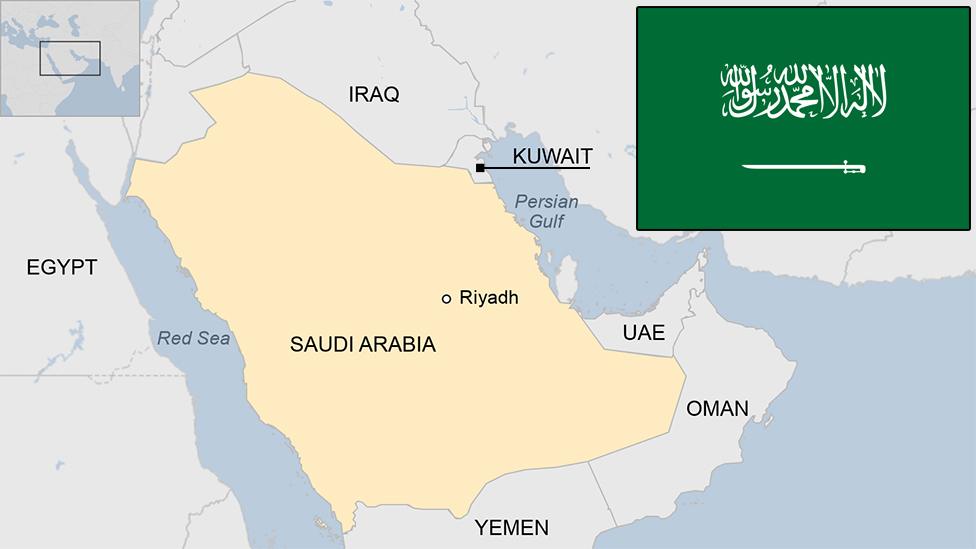Hajj stampede: At least 717 killed in Saudi Arabia
- Published
BBC reporter Tchima Illa Issoufou: "I lost my aunt as a result of the stampede"
At least 717 people taking part in the Hajj pilgrimage have been killed in a stampede near the Islamic holy city of Mecca, officials in Saudi Arabia say.
Another 863 people were injured in the incident at Mina, which occurred as two million pilgrims were taking part in the Hajj's last major rite.
It is the deadliest incident to occur during the pilgrimage in 25 years.
King Salman has ordered an urgent review of this year's Hajj plans "to improve the level of organisation".
The supreme leader of Iran, which lost at least 95 of its citizens in the crush, has criticised Saudi Arabia's preparedness.
It is the second disaster to strike Mecca in two weeks, after a crane collapsed at the Grand Mosque, killing 109 people.
In pictures: Aftermath of the stampede
Accounts from BBC staff in Mina
During the Hajj, pilgrims travel to Mina, a large valley about 5km (3 miles) from Mecca, to throw seven stones at pillars called Jamarat, which represent the devil.
The pillars stand where Satan is believed to have tempted the Prophet Abraham.

At the scene - Tchima Illa Issoufou, BBC Hausa
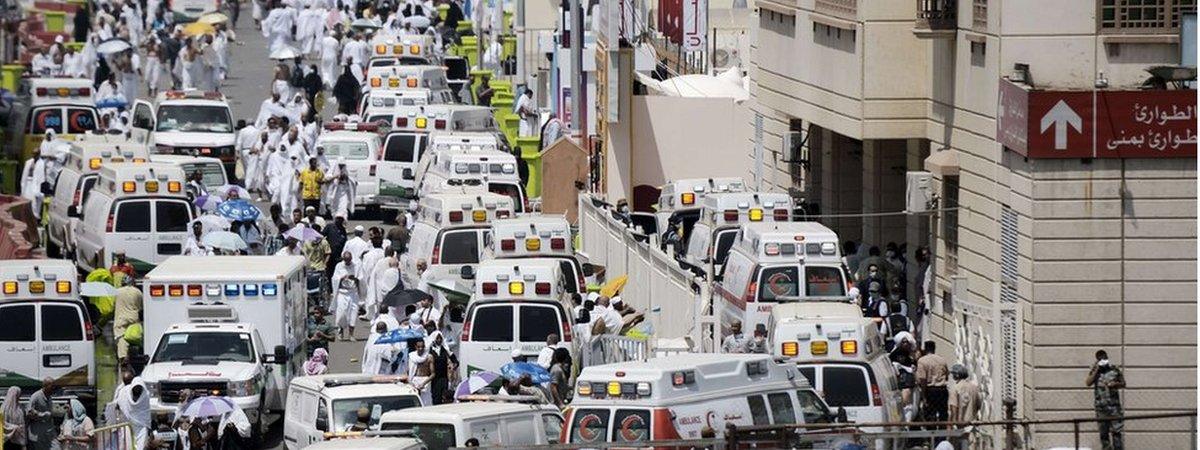
People were going towards the direction of throwing the stones while others were coming from the opposite direction. Then it became chaotic and suddenly people started going down.
There were people from Nigeria, Niger, Chad and Senegal among other nationalities. People were just climbing on top of others in order to move to a safer place and that's how some people died.
People were chanting Allah's name while others were crying, including children and infants. People fell on the ground seeking help but there was no-one to give them a helping hand. Everybody seemed to be on their own.
It affected some members of our group. I lost my aunt as a result of the stampede and at the moment, two women from our entourage - a mother and her daughter - are still missing.

The Saudi civil defence directorate said the stampede occurred at around 09:00 local time (06:00 GMT) as pilgrims were walking towards the five-storey structure which surrounds the pillars, known as the Jamarat Bridge.
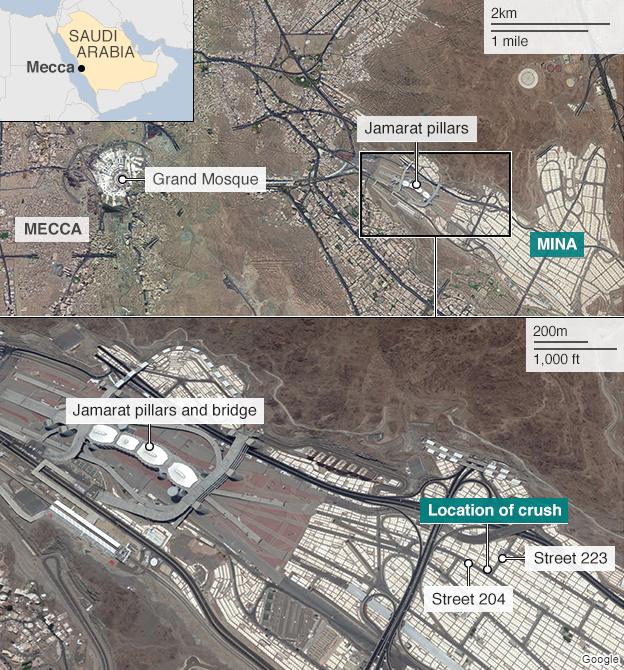
Maj Gen Mansour al-Turki, a spokesman for the Saudi interior ministry, said the crush occurred when two large groups of pilgrims converged from different directions on to one street.
Photographs showed the bodies of dozens of pilgrims on the ground, some piled high. They were all dressed in the simple white garments worn during the Hajj.
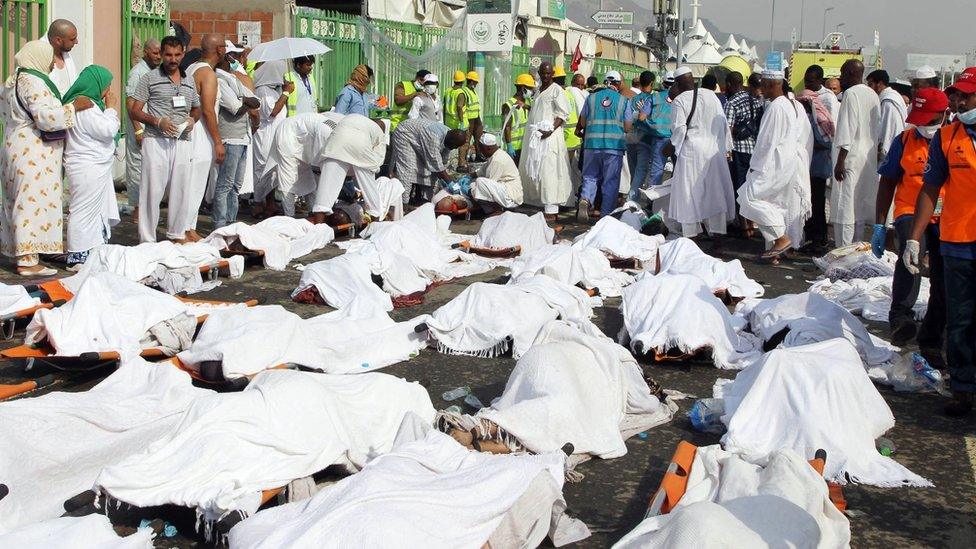
"Dead bodies stretch as far as my eyes can see," one BBC employee in Mina said
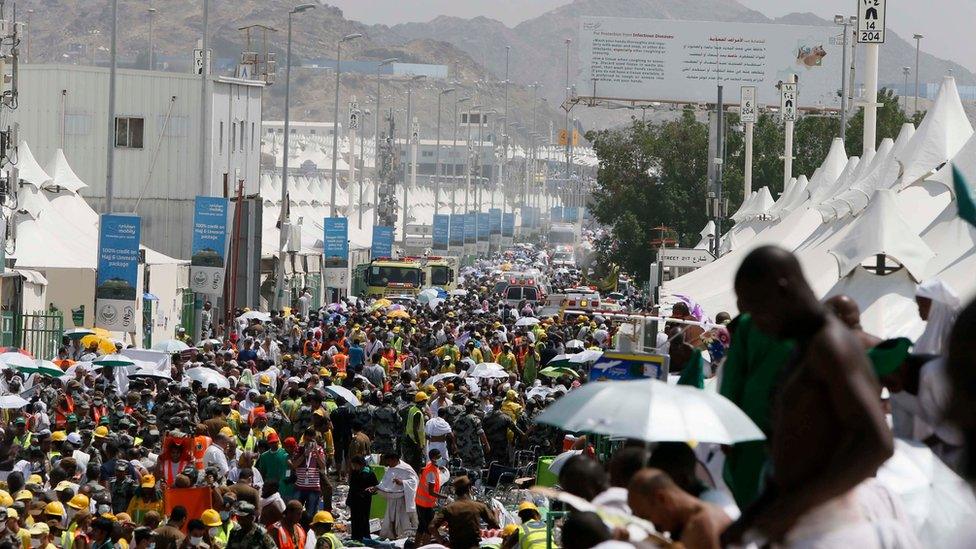
Dozens of Iranians were reportedly among the dead
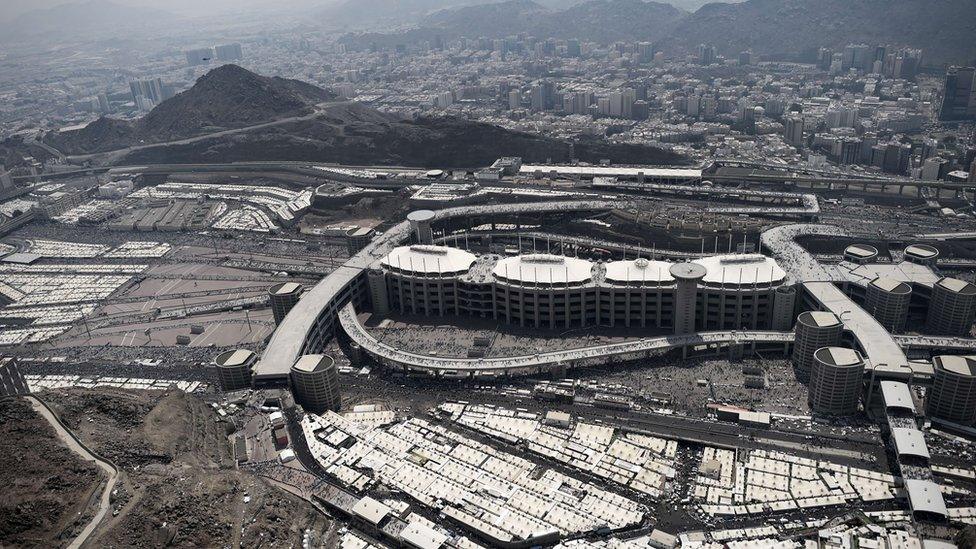
The incident occurred as pilgrims walked towards the Jamarat Bridge, where the pillars are located
"I saw someone trip over someone in a wheelchair and several people tripping over him," Abdullah Lotfy, from Egypt, told Associated Press. "People were climbing over one another just to breathe."
"Dead bodies stretch as far as my eyes can see," said Bashir Sa'ad Abdullahi, the BBC's Abuja editor, who is in Mina.
The civil defence directorate said the victims were of "different nationalities", without providing details.
As well as victims from Niger witnessed by the BBC's correspondent at the scene, Iran's state news agency, Irna, said at least 95 Iranians were among the dead, with another 150 injured.
The BBC understands at least three Indonesians are among the dead.

Hajj: Previous tragedies
2006: 364 pilgrims die in a crush at foot of Jamarat Bridge in Mina
1997: 340 pilgrims are killed when fire fuelled by high winds sweeps through Mina's tent city
1994: 270 pilgrims die in a stampede during the stoning ritual
1990: 1,426 pilgrims, mainly Asian, die in a stampede in an overcrowded tunnel leading to holy sites
1987: 402 people die when security forces break up an anti-US demonstration by Iranian pilgrims

Saudi Crown Prince Mohammed bin Nayef, who headed an emergency meeting after the stampede, has ordered an investigation.
The Saudi health minister, Khaled al-Falih, said the crush occurred because many pilgrims moved "without respecting the timetables" established by authorities.
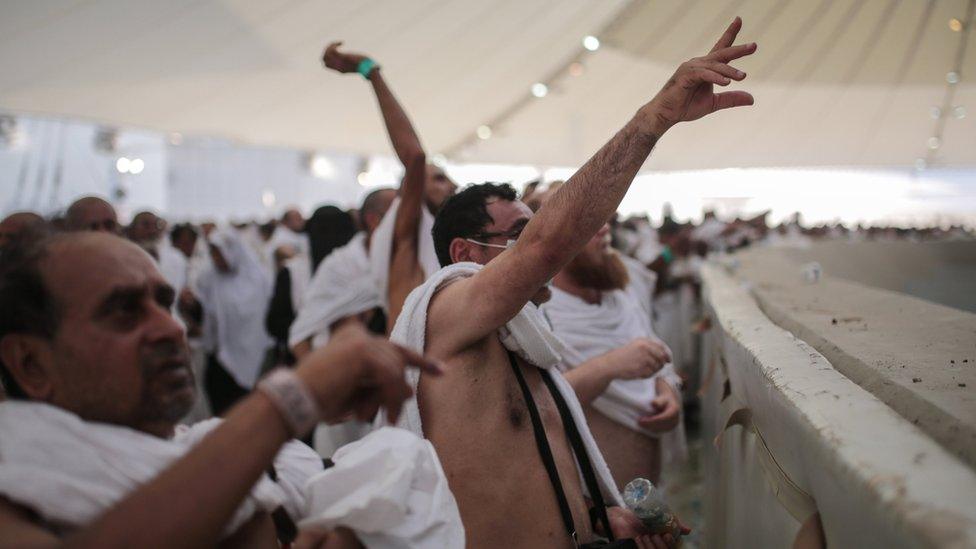
Pilgrims converge on Mina to cast stones at three pillars representing the devil
Saudi-owned al-Arabiya TV reported that the head of the central Hajj committee, Prince Khaled al-Faisal, blamed the stampede on "some pilgrims with African nationalities".
But Ayatollah Ali Khamenei, Iran's supreme leader, said the Saudi government "must accept the huge responsibility for this catastrophe", adding that "mismanagement and improper actions" were to blame.
The UK Foreign Office said it was urgently seeking more information about whether British nationals were involved.

What happens at the Hajj?
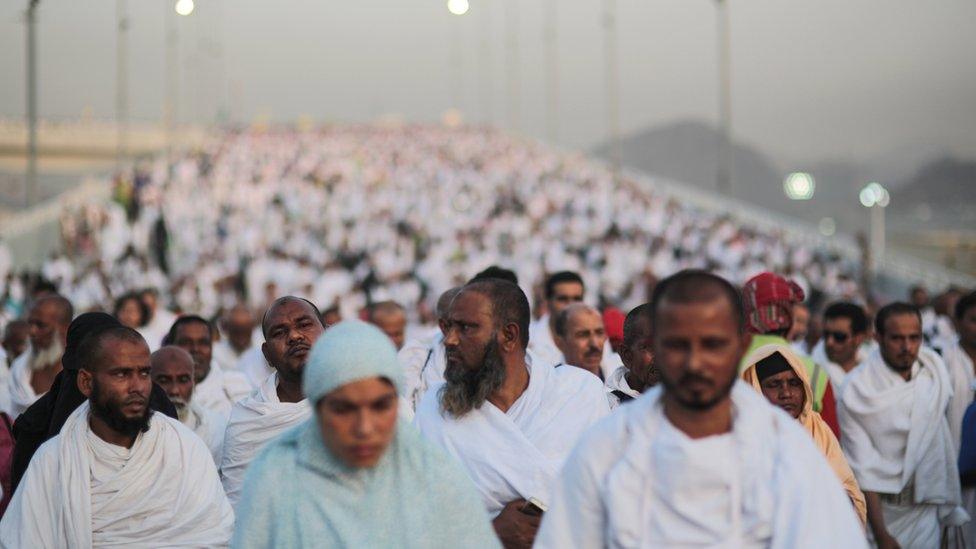
What rituals do pilgrims perform? The pilgrimage takes place in several stages over five days, including circling the Kaaba (a cube-like building in the centre of Mecca's Grand Mosque) en masse and throwing seven stones at pillars called Jamarat which represent the devil.
How many people go? Well over a million pilgrims from outside Saudi Arabia, and several hundred thousand from inside the kingdom, converge on the site each year.
How do the authorities cope? Authorities deployed 100,000 security personnel and 25,000 extra health workers this year, as well as 100,000 air-conditioned tents for temporary accommodation.

The Saudi authorities have spent billions of dollars on improving transport and other infrastructure to try to prevent such incidents.
The Hajj is the fifth and final pillar of Islam. It is the journey that every able-bodied adult Muslim must undertake at least once in their lives if they can afford it.
The number of people attending Hajj rose from 57,000 in 1921 to a high of 3.2m three years ago, according to the Saudi Central Department of Statistics and Information, external.
That figure dropped to just over two million last year.
- Published25 September 2015
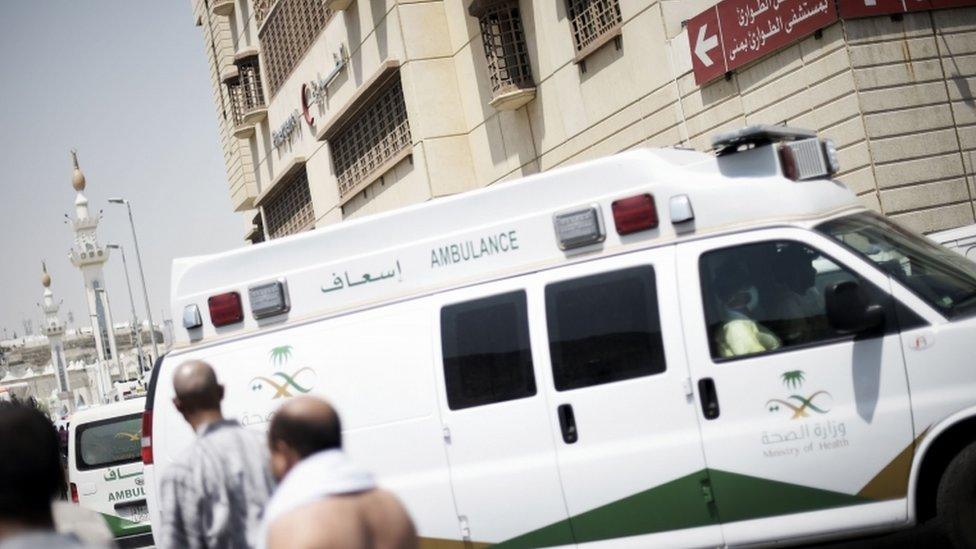
- Published24 September 2015
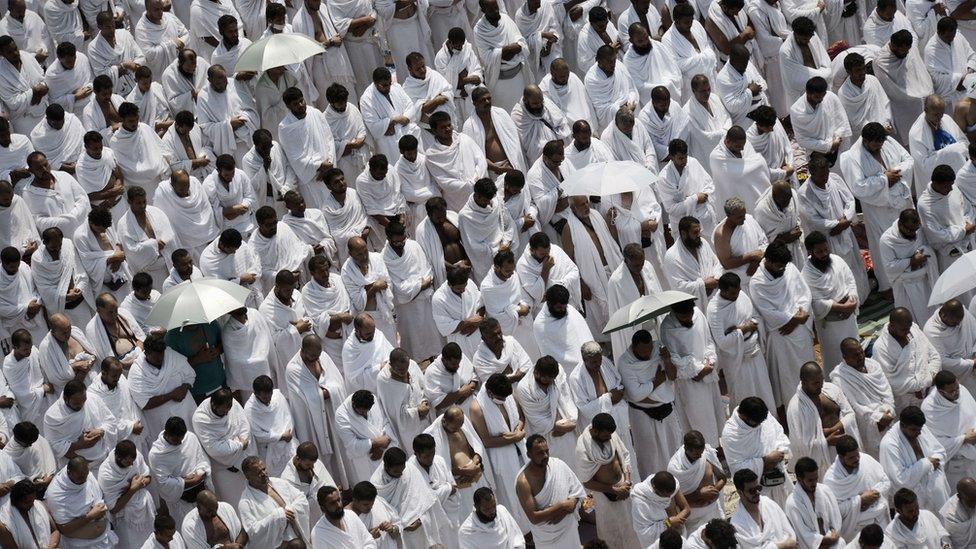
- Published24 September 2015
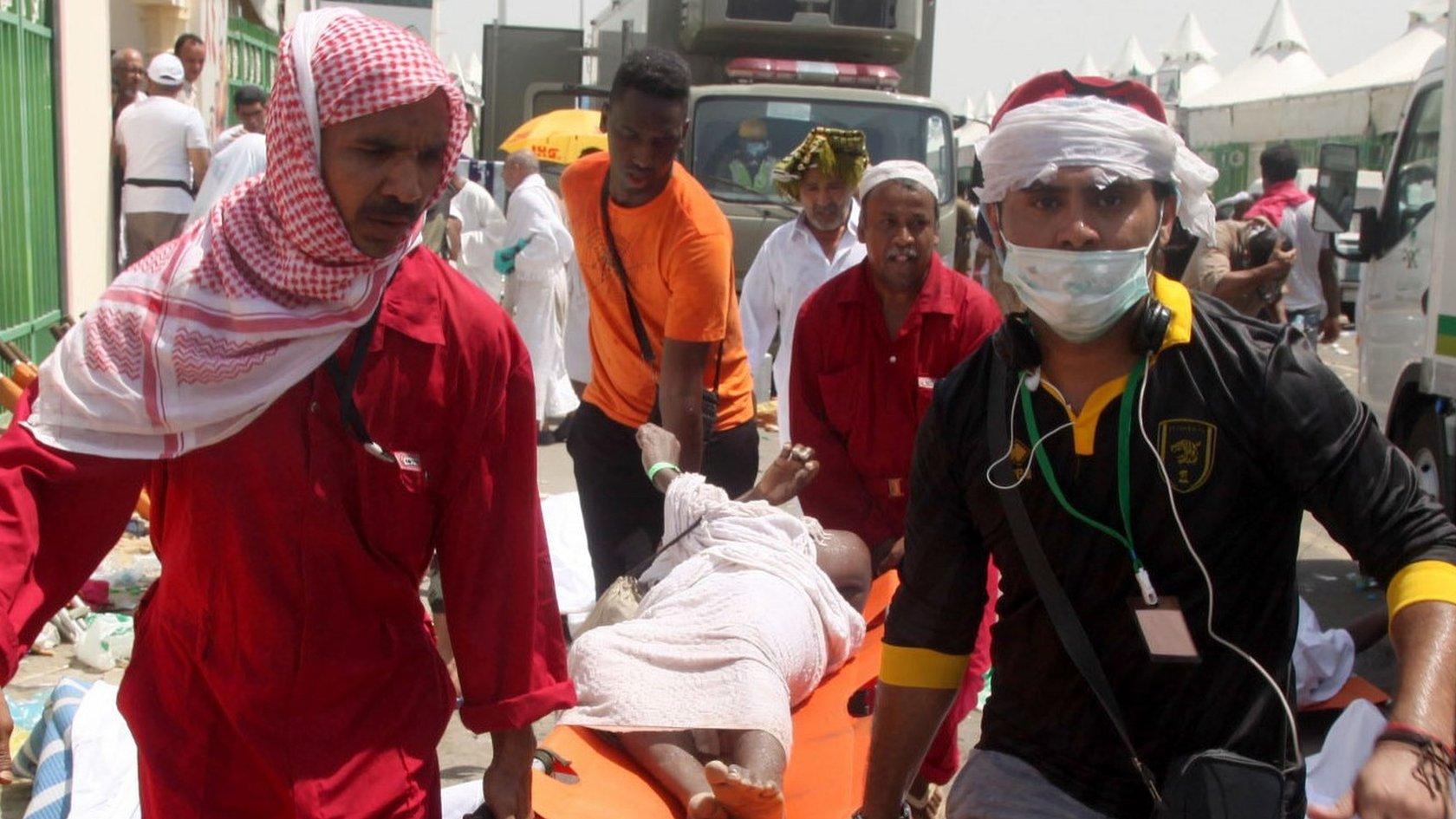
- Published24 September 2015
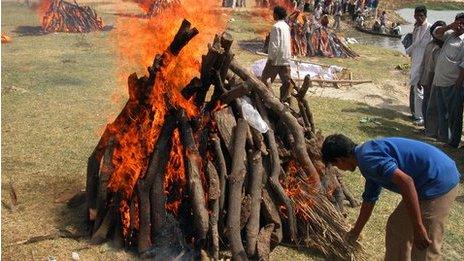
- Published24 September 2015
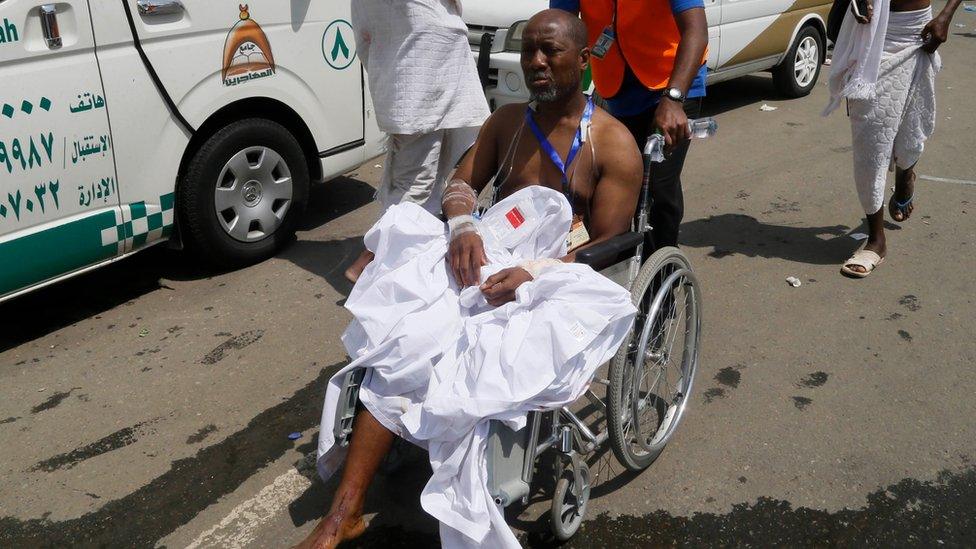
- Published24 September 2015
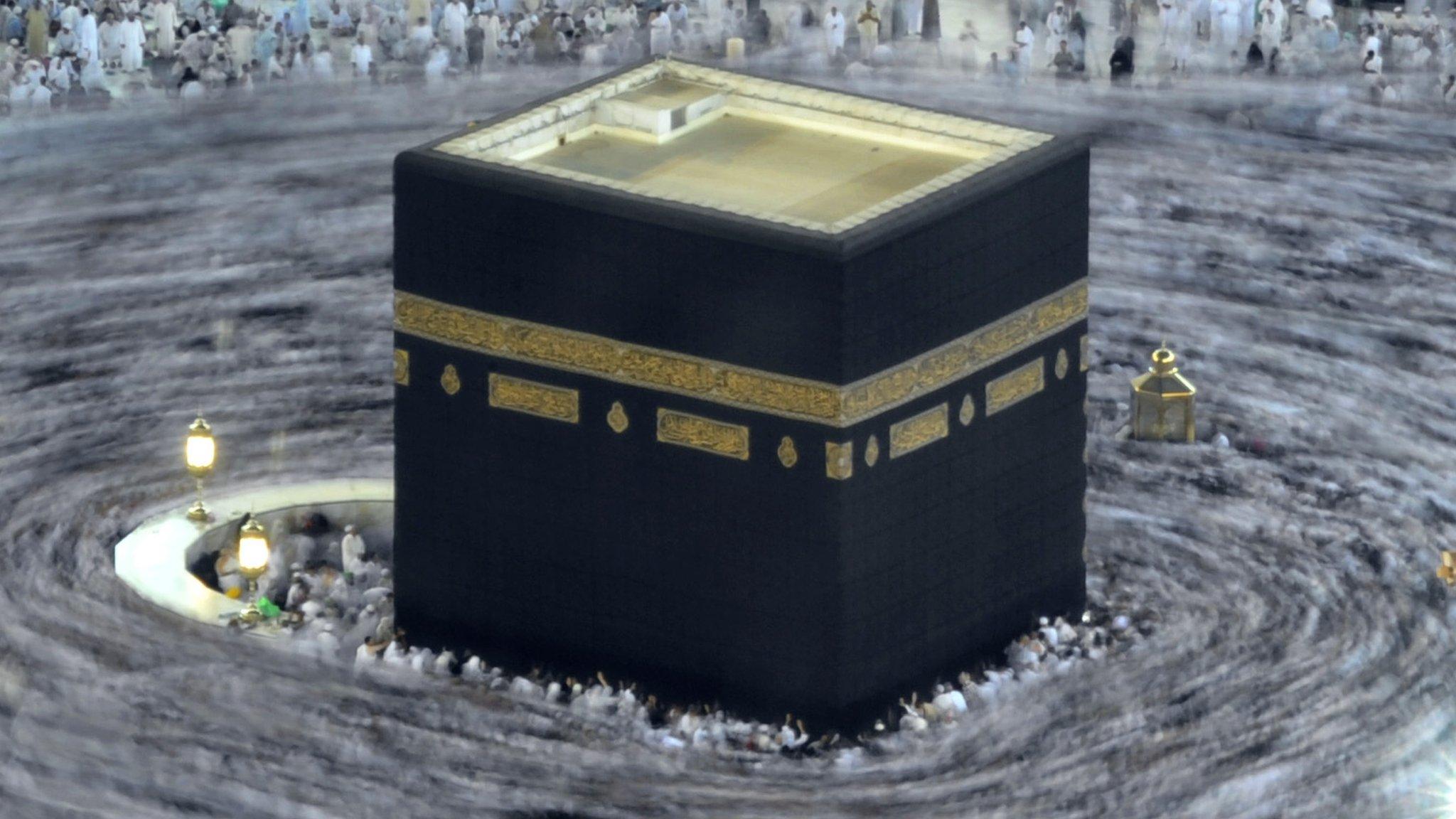
- Published24 September 2015
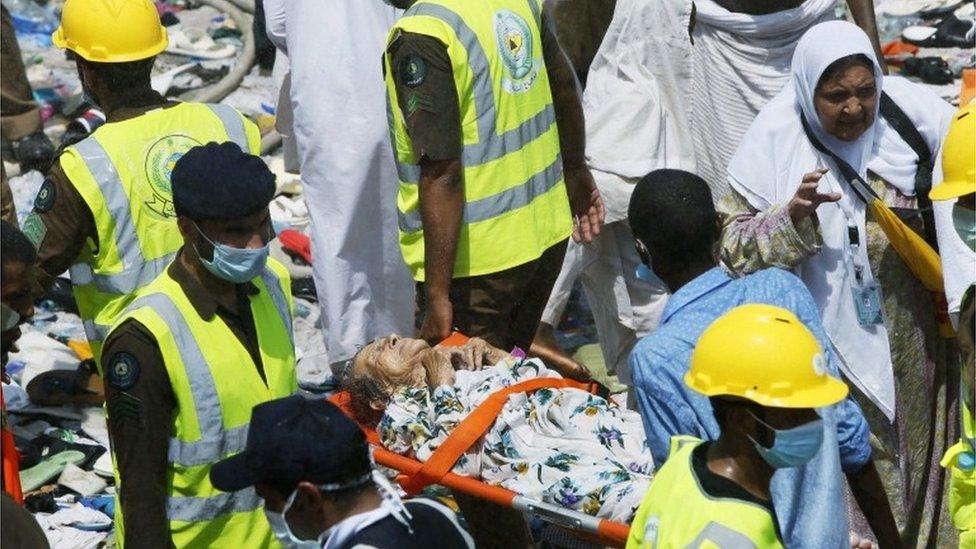
- Published12 September 2015
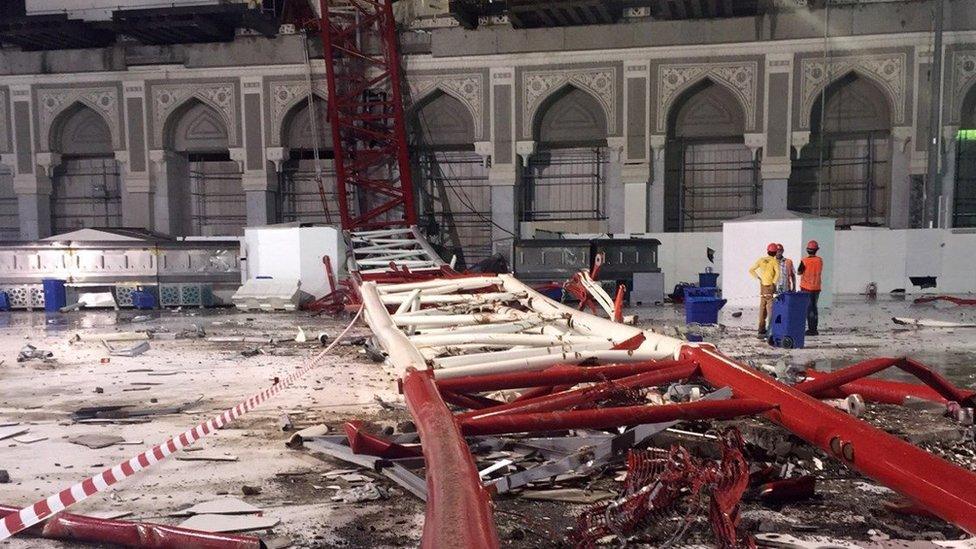
- Published29 August 2023
